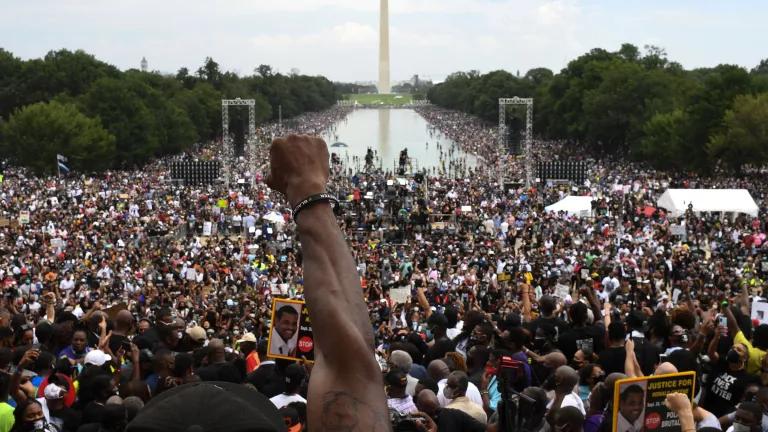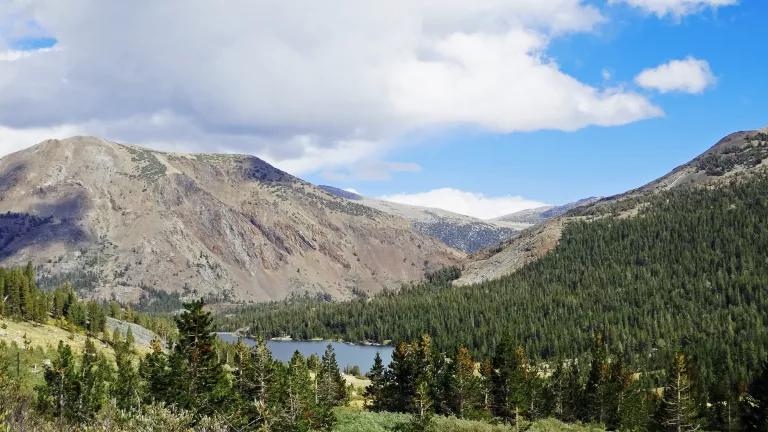From Black History Month to a New Momentum for Change

This pivotal February gives us a moment to reset and level up our fight for racial justice.
This February is a Black History Month like no other.
While this is absolutely an important month to celebrate Black excellence and Black contributions to society, we need much more than that this February of this particular year. Over the past year, the national conversation around race and systemic racism has experienced a tectonic shift that cannot and should not be reversed. Although some may try to claim it is “partisan” to say that Black Lives Matter, it is no longer radical—and more and more people understand that it never was. This is an occasion to consider how the past should illuminate our future toward a more inclusive and just society.
For me, the weight and the complexity of being Black in America is expressed in this moving speech from Doc Rivers, the head coach of the Philadelphia 76ers, in response to the shooting of Jacob Blake last year: “It’s amazing why we keep loving this country, and this country does not love us back.”
This is the truth for many Black people in the United States—to live in a culture built on exclusion from its inception, from the founding fathers excluding Black people when writing about the rights of people in the U.S. Constitution to Plessy vs. Ferguson, which upheld the constitutionality of segregation, to the Electoral College system.
Yet, even with the deck stacked against us, Black people have survived. Despite ongoing systemic oppression, we have been resilient and courageous and continue to contribute to the country, despite being intentionally excluded from it.
This exclusion is still baked into our culture—and workplaces are no different, with more access and opportunity for white people. The environmental movement and green groups have also excluded voices of color, and this culture persists in pernicious ways.
We need to actively undo this with inclusion. Inclusion is the practice of making space for the voices and ideas of marginalized groups to contribute in meaningful ways—ways that ultimately repair, repeal, or replace the structures, policies, and practices borne out of exclusionary practices. And while diversity is increasing in this country, and in the environmental and climate movement, it means nothing if these spaces are not inclusive. As an African proverb cautions, “A child who is not embraced by the village will burn it down to feel its warmth.”
Inclusion is critical to becoming a more equitable country and a better environmental movement.
For businesses and organizations, this means more input and more voices, which results in more impactful decision-making, with people feeling more inspired and with increases in team performance. When we feel safe and respected and like we belong, that’s when we can truly do transformative work.
Beyond that, we have just begun to scratch the surface of what’s possible with true inclusion. We saw this potential last summer when people in the environmental space renounced racism in the aftermath of George Floyd’s killing. This counts as progress, considering that racism has been viewed as separate from environmental and climate issues, which we know is not true. But we need to build on this energy.
The environmental movement shouldn’t just stop at calling out racism. It needs to raise more voices and make sure they’re heard in order to imagine and illustrate the future and make real the world we want to have. That’s how we get the best possible outcomes—from legal decisions that affect the health of the communities suffering from polluted air or contaminated water to policies for the just and equitable transition underway.
After all that we’ve been through in the past year—not only the reckoning on race but also an unprecedented wildfire and hurricane season, the election, the insurrection, and COVID-19 and its fallout that continues to hit Black people and communities of color disproportionately hard—I can see that these hardships are giving us the chance to create more meaningful change. And we cannot squander this opportunity to create a more just and inclusive world. The new presidential administration recognizes this dire need for diversity, inclusion, and equity, thanks to the tireless work of BIPOC communities and activists who pushed their leaders and representatives. And we continue this February, which gives us a shot at resetting our efforts—to create from this moment a new momentum—toward these goals.
It will be hard work, but I find truth in these guiding words from Frederick Douglass: “Where there is no struggle, there is no progress.” And as we face down the grave perils of the climate crisis, our struggle, our voices, and our ascendant power are just more evidence that a more inclusive and equitable future is possible.


